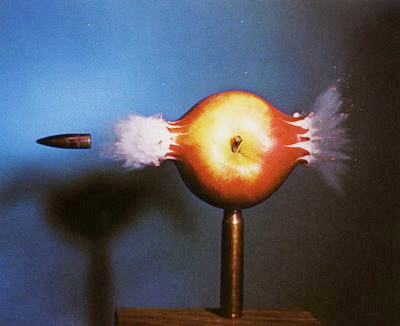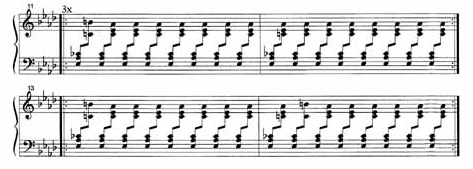 Some folks probably were comforted by an article that appeared online last year — an article titled, “Why You Probably Won’t Experience Your Own Traumatic Death.”
Some folks probably were comforted by an article that appeared online last year — an article titled, “Why You Probably Won’t Experience Your Own Traumatic Death.”
“Ever wonder what it would be like to get shot in the head, or have your face smash into a car’s windshield? Well, you can stop wondering, because you’ll never know — even if it does happen to you…
“It takes as long as 150 to 300 milliseconds (ms) to be aware of a collision after it happens…
“Now this might not sound like a lot of time, but think of what happens during a car accident. At the 1 ms mark, the car’s pressure sensor detects a collision, and at 8.5 ms the airbag system fires. At the 15 ms mark, the car starts to absorb the impact to a significant degree. It’s not until the 17 ms mark that the occupant starts to make contact with the airbag, with the maximum force of the collision reaching its apex at the 30 ms point. At the 50 ms mark, the safety cell begins to rebound, and after 70 ms the passenger moves back towards the middle of car — the point at which crash-test engineers declare the event as ‘complete.’
“And then, around the 150 to 300 ms mark, the occupant finally becomes aware of the collision.”
I wasn’t comforted, because I play Alvin Curran’s Hope Street Tunnel Blues III. For more than ten years, I’ve been training. I’ve been practicing and performing this piano piece/position paper/performance artwork/conceptual hurdle/extreme sport. At times, HSTB III is a physically painful task.
The main feature of the piano writing is very rapidly alternating chords that go on for about 14 minutes without stopping (there is a single measure of rest). Rapid alternating chord passages occur in music by Tchaikovsky, where they go on for a phrase or two, or in music by John Adams, where they continue for a couple of minutes. Hope Street Tunnel Blues is a kind of piano equivalent of running a marathon…

Alvin Curran: Hope Street Tunnel Blues III, mm. 11-14
When I first told Alvin I was going to play Hope Street Tunnel Blues in a concert, his reaction: “You’re going to play that piece?”
In learning to perform the music, I’ve also gotten better at hearing it. Now, I hear each chord and notice that one is a bit early, or late, that the constant alternation of left-right-left-right is slightly accelerating or dragging, that a changed bass note takes a tiny bit of extra time. It’s as though my hearing, my perception has sped up. Playing music may “rewire” our brains.
I calculate that each of these chords lasts about 85 milliseconds, 85 thousandths-of-a-second. And that’s what makes me nervous. It may be that I’m perceiving the events of this piece after they happen — as with latency in a cellphone call. But I’m aware of increments of time around 85 ms in length (though most listeners will not be). And that’s getting a bit close to the numbers in the article.
I mentioned my concerns to Judy Gordon. Maybe I’ve inadvertently taught myself to experience, made myself vulnerable to perceiving some future quick catastrophe? She said, my speeded-up perception of time probably only functions while I’m playing Hope Street TB. So then, if I’m suddenly killed at any time other than when this piece is underway, I probably won’t notice.

Hi,
even in sudden death there is an indication given. I lost fiance due a heart attack at an young age. He kept on asking if I would be a part of his funeral or Will be busy with work as always. He always spoke about how his funeral Will be planned. The day before his death he said he might not get a chance to talk to me again. All were indications as if he knew he is gonna go away from me. But I did not realise.
I miss him so much. Will always love my baby.